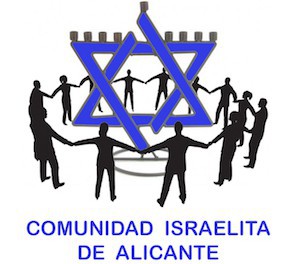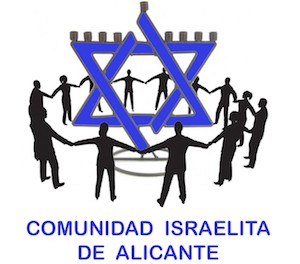Parshah of the Week

Parshah Terumah for February 2026/ Adar 4, 5786
Torah Readings: Terumah, Exodus 25:1 – 27:19
Haftarah: Kings I 5.26 -6:13
God commands the Israelites to build a Tabernacle. He provides the exact details of how to construct it, and how to build the different instruments and vessels which were used therein.
God instructed Moses to accept contributions from the Israelites for the construction of a Tabernacle: “Let them make for Me a sanctuary, and I will dwell amongst them.” The needed materials: precious metals, dyed wools and hides, flax, wood, olive oil, spices and gems. G‑d then gave detailed instructions regarding the construction and dimensions of the Tabernacle and its vessels—starting with the Ark that housed the Tablets. The Ark was to be made of gold-plated acacia wood. Rings were to be attached to the corners of the Ark, wherein were inserted the poles that were used to transport the Ark.
The Ark was to be covered with a slab of pure gold. Two golden, winged cherubs were to protrude from this cover. Next G‑d gave instructions for constructing the Table for the Showbread. This table was also to be made of gold-plated acacia wood, and also to contain rings for transportation poles.
The seven branched Menorah (candelabra) was next on G‑d’s list. It was to be beaten out of a single block of pure gold, with decorative cups, knobs and flowers on its body. The Torah now turns its attention to the construction of the Tabernacle’s sanctuary. The covering of the Sanctuary was to consist of several layers of tapestries. The first layer was to be a woven mixture of dyed wools and linen. The second layer was to be made of goat’s hair. These two oversized coverings also covered the outsides of the Tabernacle’s walls. The very top of the Tabernacle was then to be further covered by dyed ram skins and tachash hides.
The walls of the Tabernacle were to be upright beams made of gold-plated acacia wood. The bottom of each beam had two projections that were to be inserted into two silver sockets. The Tabernacle’s front side (to the east) was to have no wall. Its northern and southern side were to have twenty beams each. Its western wall was to have eight. Altogether the inside of the sanctuary was 30 cubits (approx. 45 feet) by 10 cubits, and 10 cubits high. The beams were held together by several crossbars.
The Tabernacle’s sanctuary was to consist of two sections: the innermost chamber was the Holy of Holies, wherein the Ark was to be placed; and the outer chamber was the Holy Chamber, which housed the Menorah and the Table (as well as the Golden Altar which will be described in next week’s reading). Two curtains were to be woven of dyed wools and linen. One was to be placed between the Holi of Holies and the Holy Chamber, the other covered the eastern side of the Tabernacle—its entrance . G‑d then gave instructions for the construction of the Outdoor Altar. This altar was to be made of copper-plated acacia wood, and it was to have four “horns,” vertical projections, protruding from its uppermost corners. The altar, too, was equipped with rings and transportation poles. The Tabernacle courtyard was to be 100 cubits (approx. 150 feet) by 50 cubits, and enclosed by mesh linen curtains. The entrance to the courtyard was to be on its eastern side, and the entrance was to be covered by a curtain woven of dyed wools and linen.
Parashá Truma Adar 4, 5786/ Febrero 21, 2026
Lecturas de Torá Truma, Exodo 25:1 – 27:19
Haftarah: Reyes I 5.26 -6:13
El pueblo de Israel es llamado a contribuir con quince materiales – oro, plata y cobre; lana teñida de color azul, púrpura y rojo; lino, pelo de cabra, pieles de animales, madera, aceite de oliva, especias y piedras preciosas – con los cuales, Di-s le dice a Moshe: ”Harán para Mí un santuario, y Yo voy a morar entre ellos”.
En la cima del Monte Sinai, Moshe recibe las instrucciones detalladas sobre cómo construir esta morada para Di-s, de manera de que pueda ser fácilmente desmantelada, transportada y rearmada durante los diferentes viajes del pueblo por el desierto.
En el cuarto más interno del Santuario, tras una cortina bordada artísticamente, estaba el Arca conteniendo las Tablas del Testimonio grabadas con los Diez Mandamientos; en la tapa del Arca había dos querubím (ángeles) tallados en oro puro. En el cuarto exterior se encontraba la Menorá de siete velas y la Mesa sobre la cual se acomodaba el “pan de rostros”.
Las tres paredes del Santuario estaban formadas por 48 planchas de madera paradas, cada una de las cuales estaba recubierta en oro y sostenida por un par de bloques de plata. El techo estaba formado por tres capas de coberturas: (a) tapetes de lana y lino multicolores; (b) una cobertura hecha de pelo de cabra; (c) una cobertura de pieles de carnero y tajash. En el frente del Santuario había una cortina bordada sostenida por cinco postes.
Una serie de cortinas de lino soportadas por 60 postes de madera con ganchos de plata rodeaban el Santuario y el Altar de cobre que se encontraba a su frente. Las cortinas estaban reforzadas por estacas de cobre.
